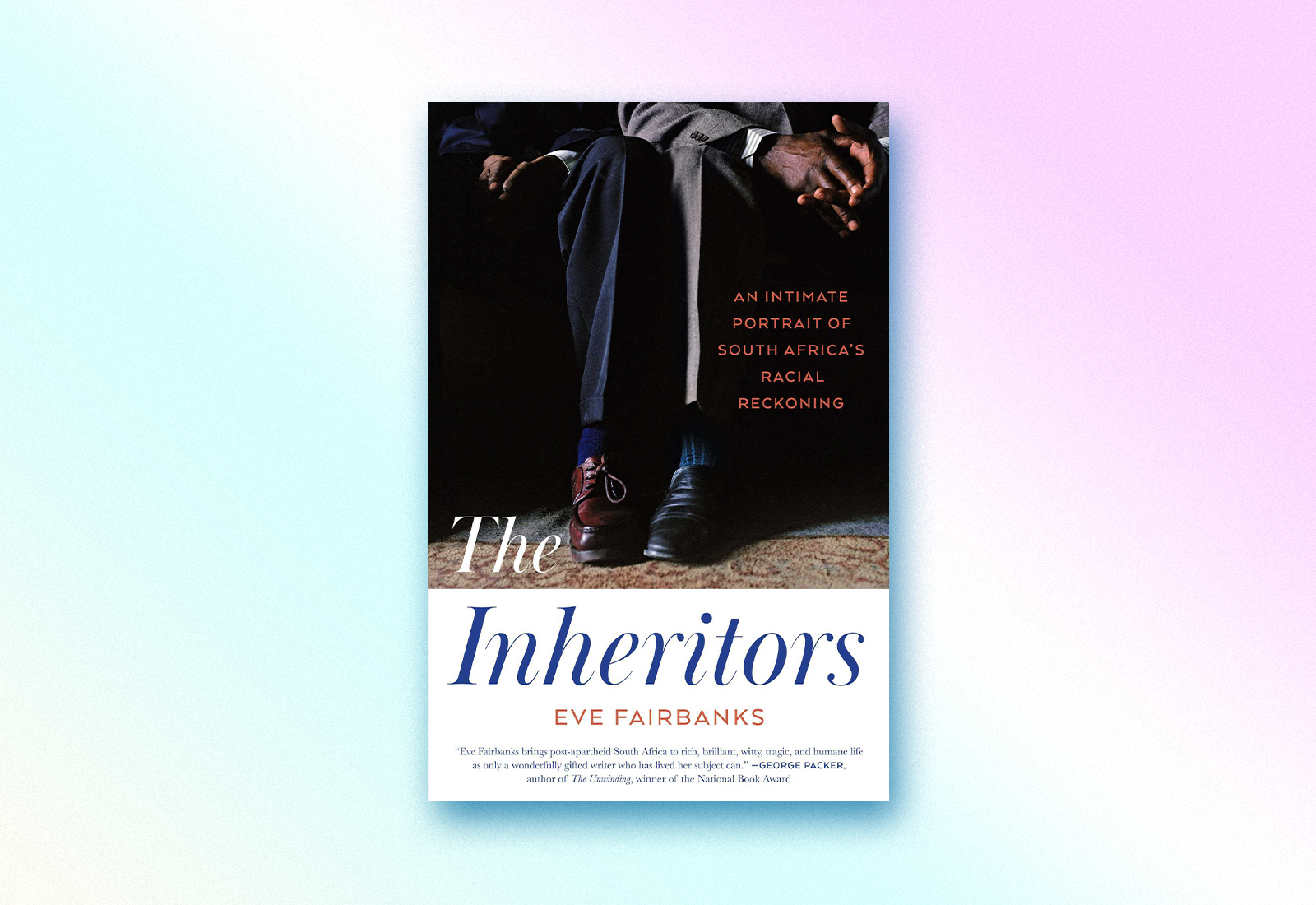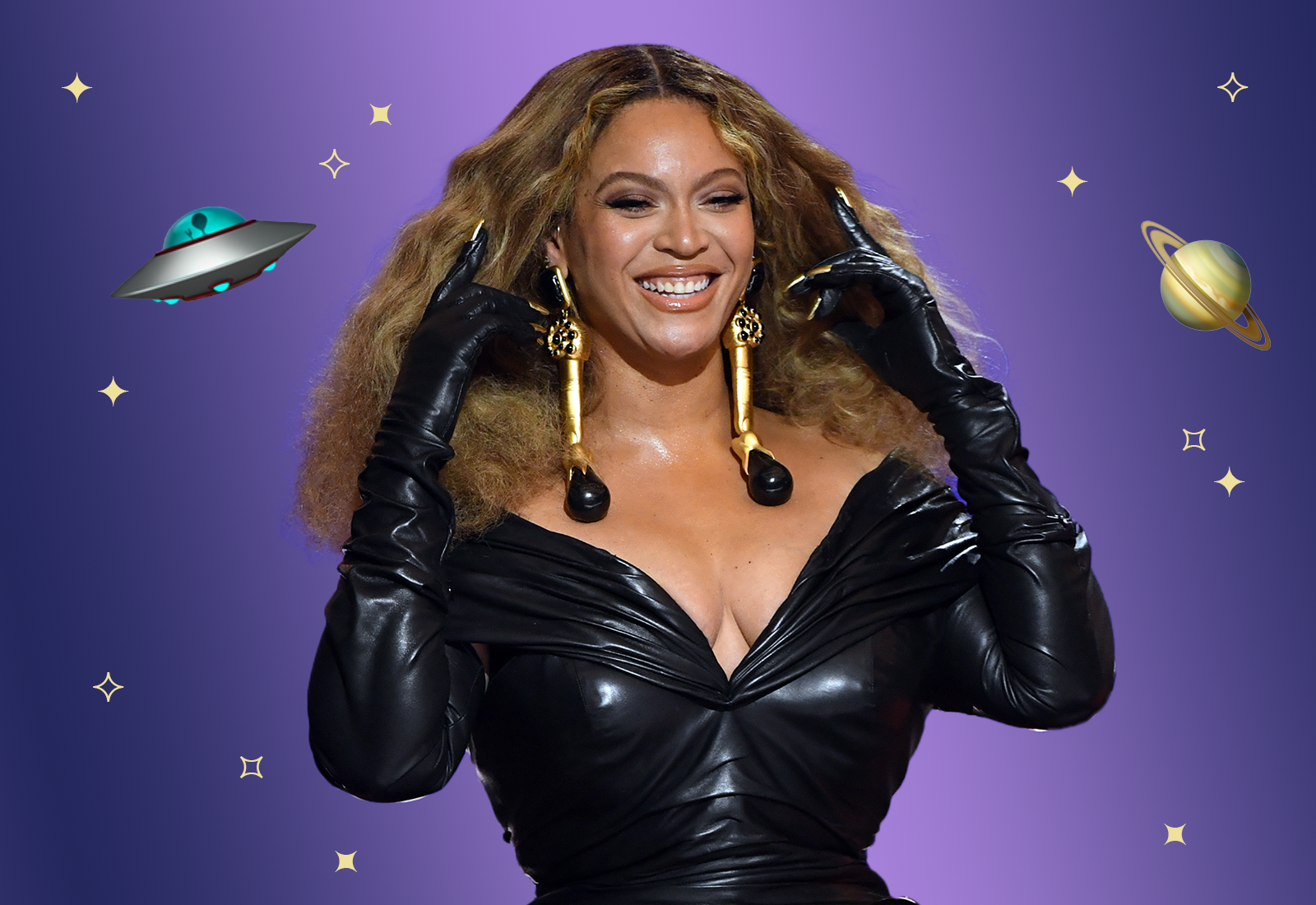
Welcome to the latest edition of BuzzFeed News' culture newsletter, Cleanse the Timeline! You can subscribe here.
Hello,
This week, we’ve got a review of Eve Fairbanks’s The Inheritors, a sweeping look at South Africa during and after apartheid, and Estelle’s favorite track from Beyoncé’s new opus.
Cheers,
Tomi

Welcome to Read This, where we recommend something old or new to add to your ever-growing book pile.
The Inheritors by Eve Fairbanks

For 12 years, Virginia-based politics reporter Eve Fairbanks lived in South Africa, talking to both white and Black South Africans about the apartheid era and, perhaps more crucially, life after it. The result is this engrossing, deeply empathetic narrative account of three South Africans and, implicitly, the nation at large. There’s Dipuo, a Black woman born and raised in Soweto who was involved in resistance movements against the apartheid regime, her daughter Malaika, a strong-willed, outspoken twentysomething writer often invited to speak at elite conferences where she chafes at the white liberals who “were clapping for themselves — celebrating their own willingness to take a punch,” and Christo, an Afrikaner army veteran turned lawyer who founded a controversial all-white dorm at an integerated university.
At the heart of the book, which came out in July, are the roiling contradictions of life postapartheid. The white South Africans who Fairbanks observes feel like they’ve gotten away with something — and they have. White South Africans still hold a disproportionate amount of the wealth compared to their Black counterparts. And yet white South Africans position themselves as a persecuted minority. They self-segregate and fear home invasions and write apocalyptic fiction and worry excessively about the welfare of their pets. Some leave for Australia only to come back sheepishly, missing the explicit privileges they enjoy as white South Africans.
But Black South Africans are also struggling with disillusionment after the end of apartheid. The African National Congress, the party of Mandela, is full of corrupt leaders who are just as willing as their white brethren to exploit the Black citizens living in poverty. Some of the Black South Africans who Fairbanks talks to secretly wonder if they just aren’t capable of ruling themselves. Fairbanks notes how during the reparations process, when Black South Africans who proved their land had been stolen by white farmers, could get the land back, they searched for white representatives to vouch for them. Fairbanks herself is given a similar assignment when a Black friend asks her to come to preschool interviews with him and his daughter in the hopes that the presence of a white woman would help get his daughter admitted (it does). Black farmers wonder why their farms are failing, even though under apartheid, farms were subsidized heavily by the apartheid-era government. Black women fear addressing the high rates of rape in South Africa and crime without inadvertently demonizing all Black men as violent rapists.
Fairbanks writes graciously about all the people she interviews, acknowledging all of these contradictions and the complete lack of clear and easy solutions.
I do wish she unpacked her own interest in South Africa a bit more. There’s just an inherent amount of hubris in deciding to write a book about a country in general, let alone one you don’t come from and one as deeply divided as South Africa. Did she have any trepidations? Would a Black writer have gotten as much access as Fairbanks did to the Afrikaners she spoke with? Still, the care she took with this book makes it a notable and memorable achievement. —Tomi Obaro
(BuzzFeed may collect a share of sales or other compensation from the links on this page if you decide to shop from them.)

Welcome to I Like the Sound of That, where a staffer goes deep on a song they’re currently obsessed with.

“Alien Superstar” by Beyoncé
Happy Beyoncé week. The BuzzFeed News staff has talked about Renaissance, her seventh album, at length. But I’m still thinking about it. I estimate that about 80% of my time since last Friday has been spent listening to it. When I open my mouth, “Cuff It” just…comes out. It’s uncanny.
Renaissance plays like a 62-minute DJ set, with seamless transitions, varied textures, and formidable gestalt, but one song has really been getting me going. “Alien Superstar” has achieved much more than being able to reference Right Said Fred’s “I’m Too Sexy” in a way that’s actually sexy. It also dislodged the album’s lead single “Break My Soul” from the No. 1 Apple Music spot on Monday. While it’s not the most urgent dance banger on the album, its beat has a sneaky staying power and has inspired plenty of dance-inspired mashups by fans. “Do not attempt to leave the dance floor,” instructs a voice at the beginning of the track. I couldn’t if I tried.
“Alien Superstar” is both airy and exacting, irresistible and stern. Beyoncé’s gauzy vocals float, a deity carelessly reflecting on her own luster. The lyrics reflect classic Bey sentiments of grandeur (“I’m too classy for this world”) corseted in the album’s signature ballroom references (“category: bad bitch”). But she gets really cosmic after the substantial sample of National Black Theatre founder Barbara Ann Teer. “We dress a certain way / We walk a certain way,” we hear Teer say. “All of these things we do in a different / Unique, specific way that is personally ours.” That’s when Bey translates self-celebration into group affirmation. She has greatness, and her community does, too: “We just reaching out to the solar system.”
This made me think of “Flawless” — remember how supportive that song felt? To take you back: Beyoncé starts by establishing her majesty, instructing us to “bow down, bitches.” Then another voice sweeps in — Chimamanda Ngozi Adichie’s — widening the aperture and interrogating why we “teach girls to shrink themselves, make themselves smaller.” Then Beyoncé is back, with a wink: “We flawless, ladies, tell ‘em.” It’s a kind of bait and switch: not Beyoncé versus the world, but Beyoncé with the world.
“Alien Superstar” sees Bey building collective confidence on the hard-won foundation of her success. It’s generosity filtered through the freedom that one earns via experience, responsibility, and perspective. It is Beyoncé at Galaxy Brain, at her most expansive and purposeful. We simply love to see it. —Estelle Tang

